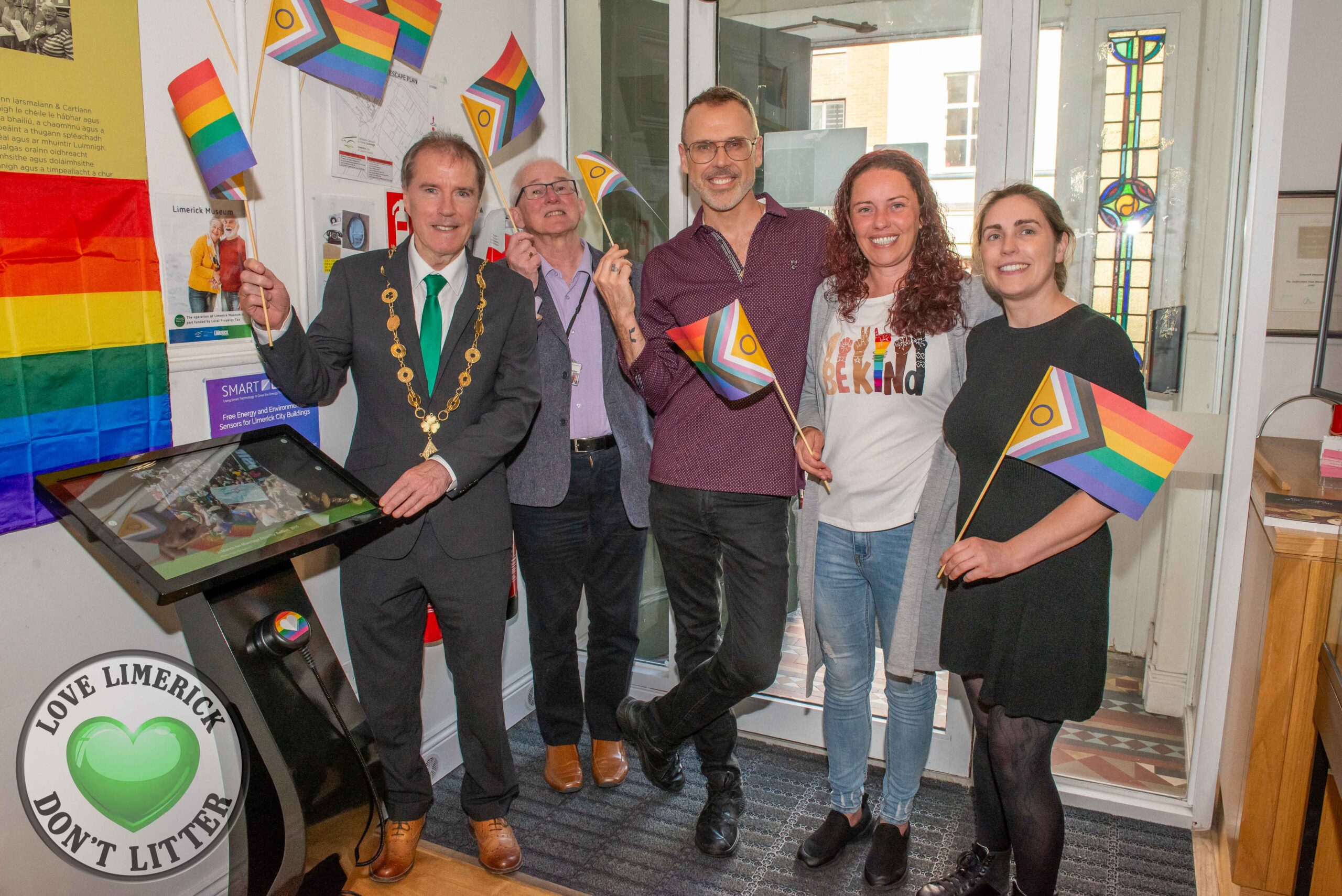

Culture
Limerick Museum LGBT digital exhibition outlines the history of the LGBTQAI+ rights movement in Ireland
Limerick Museum LGBT digital exhibition – Pictured above are Mayor Gerard Mitchell, Matthew Potter, Limerick Museum Curator, Richard Lynch, PRO Limerick Pride, Lisa Daly, Festival Director Limerick Pride and historian Sharon Slater. Picture: Olena Oleksienko/ilovelimerick
A Digital Introduction to Irish LGBTQI+ History at Limerick Museum

A Digital Introduction to Irish LGBTQI+ History exhibition is currently running at Limerick Museum.
Limerick Museum is delighted to be part of a collaboration between the National Museum of Ireland and the Local Authority Museums Network (LAMN) to share videos, photographs and archival collections which tell the stories of LGBTI+ people in Ireland and the growth of the Irish LGBTI+ rights movement.
This material was first displayed publicly in 2019 as part of the ground-breaking Rainbow Revolution Trail at the National Museum of Ireland- Collins Barracks. This ongoing project will ensure that screens displaying this content will now be available across the twelve local authority museums which make up the LAMN, in order to provide greater access for people to explore these stories. This is the first historical exhibition focusing on LGBTI+ history to be held in both national and regional museums.
This digital exhibition includes the oral histories of some 42 people who share their personal experience of witnessing the growth of the LGBTI+ rights movement in Ireland. Many of those interviewed are household names, including Nell McCafferty, Lydia Foy, Ailbhe Smyth, Rory O’Neill, Tonie Walsh, Sara R. Phillips, Gay Byrne, Mary McAleese and Mary Robinson.
These interviews were captured by RTE film-maker Edmund Lynch in 2013 for his documentary, ‘A Different Country’. Also included are a range of photographs, video footage and documents illustrating the emergence of the LGBTI+ rights movement in Ireland.
The course of history is rarely a ‘straight’ forward timeline and this is especially true of the fight for Irish LGBTQ+ rights. Whilst fighting for the rights of individual minorities, in so many ways, these campaigns have often bolstered the trajectory of gay emancipation.
Councillor Gerald Mitchell, Mayor of the City and County of Limerick said, “As worthy and notable as all of these events are in the telling of Irish LGBTQ+ history, they cannot begin to represent the varied challenges that the community has faced throughout the nearly 50 years of modern-day LGBTQ+ activism. There have been incredible achievements made in women’s rights and Trans rights. I would urge anyone who wants to learn about Irish history to visit this free Limerick Museum LGBT digital exhibition and learn about the Irish LGBT+ movement.”
Entrance is FREE















